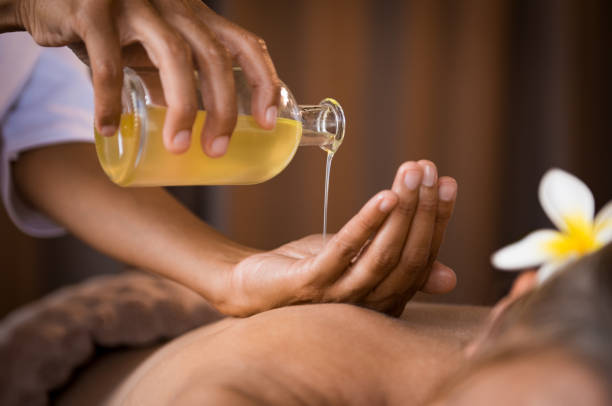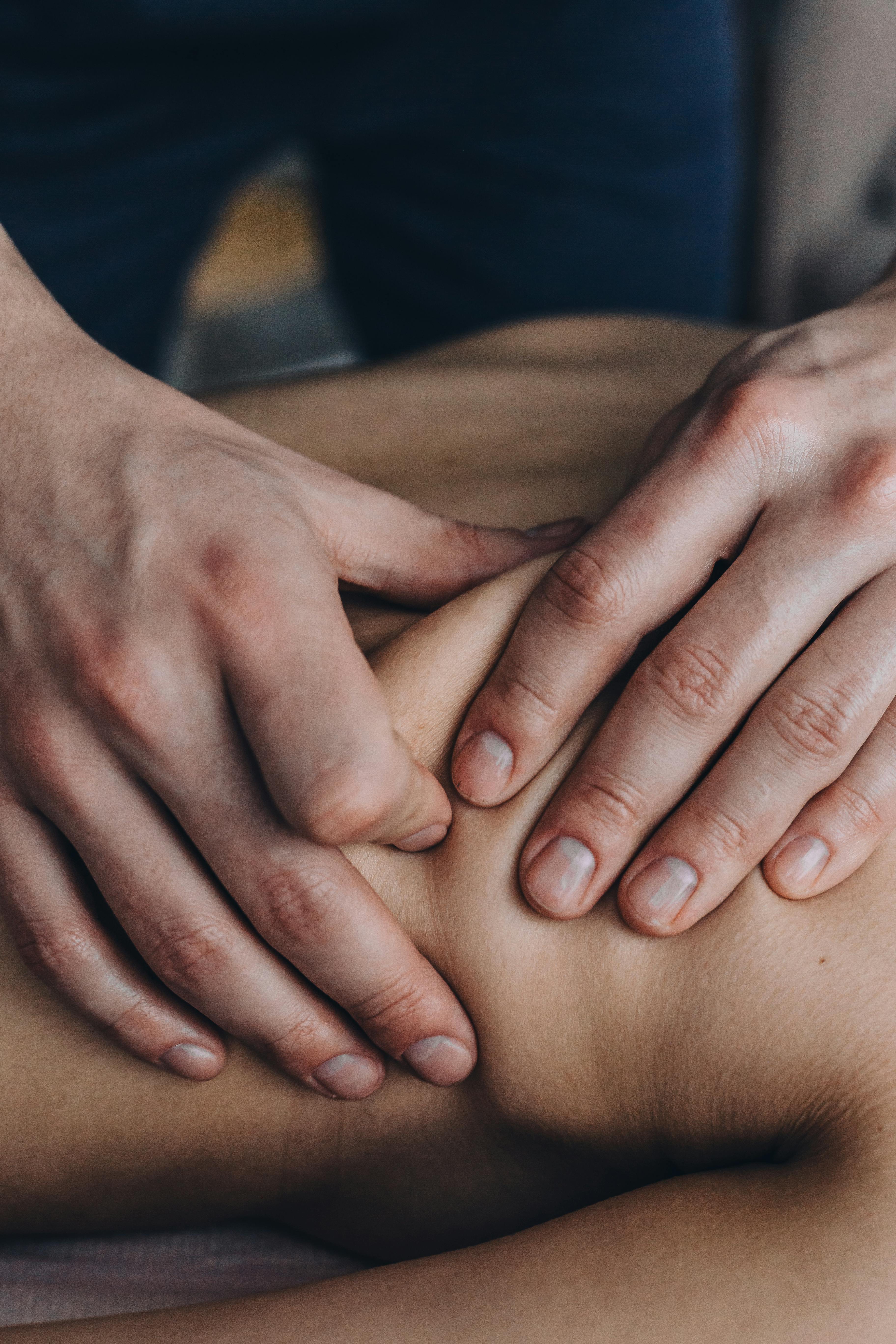Discover the Benefits of Massages for Stress Relief and Health
In today's fast-paced world, finding effective ways to relax and maintain good health has become increasingly important. Massage therapy stands out as one of the oldest healing practices that continues to provide significant benefits for both physical and mental wellbeing. Far beyond just feeling good, regular massages offer scientifically-backed advantages for stress reduction, pain management, and overall health improvement. Whether you're dealing with chronic pain, everyday stress, or simply seeking a way to pamper yourself, understanding the full spectrum of massage benefits can help you make informed decisions about incorporating this therapeutic practice into your wellness routine.

The Science Behind Massage Benefits
Massage therapy works through multiple physiological mechanisms that contribute to its healing effects. When skilled hands apply pressure to muscles and soft tissues, the body responds with increased blood circulation, which delivers oxygen and nutrients more efficiently to cells while removing metabolic waste products. This improved circulation helps reduce inflammation and promotes faster healing of damaged tissues. Additionally, massage stimulates the parasympathetic nervous system—the body’s “rest and digest” mode—triggering a decrease in stress hormones like cortisol and adrenaline while increasing the production of mood-elevating neurotransmitters such as serotonin and dopamine. The physical manipulation of tissues also helps break up adhesions and scar tissue, improving flexibility and range of motion in joints and muscles.
Top Stress Relief Massages and Their Effects
Different massage techniques offer varying benefits for stress management, each targeting specific stress-related symptoms. Swedish massage, characterized by long, flowing strokes, is particularly effective for general relaxation and stress reduction. Deep tissue massage focuses on realigning deeper layers of muscles and connective tissue, making it ideal for chronic stress patterns manifested as muscle tension. Hot stone therapy combines the benefits of thermotherapy with massage techniques to release deep muscle tension and promote profound relaxation. For those experiencing stress-induced headaches, craniosacral therapy offers gentle manipulation of the skull bones to relieve tension. Aromatherapy massage incorporates essential oils known for their calming properties, such as lavender, chamomile, and bergamot, enhancing the stress-relieving effects through multiple sensory pathways. Regular sessions of any of these stress relief massages can significantly reduce anxiety levels, improve sleep quality, and enhance overall emotional regulation.
Physical Health Improvements from Regular Massages
The physical benefits of consistent massage therapy extend far beyond temporary relaxation. Regular massages have been shown to significantly improve cardiovascular health by reducing blood pressure and improving circulation. For those suffering from chronic pain conditions like fibromyalgia, arthritis, or lower back pain, therapeutic massage can provide substantial relief by reducing inflammation and releasing tension in affected areas. Athletes and physically active individuals benefit from improved recovery times and reduced muscle soreness when incorporating sports massage into their training regimen. Massage therapy has also demonstrated effectiveness in boosting immune function by increasing the activity of natural killer cells and decreasing inflammatory cytokines. For individuals dealing with digestive issues, abdominal massage techniques can help stimulate peristalsis, relieving constipation and bloating. Even respiratory function can improve through certain massage techniques that target the chest and back muscles, helping to expand lung capacity and facilitate deeper breathing.
Exploring Popular Spa Massages and Their Unique Benefits
Spa massages combine therapeutic techniques with luxurious environments to create comprehensive wellness experiences. Thai massage, an ancient healing practice, incorporates yogalike stretching with acupressure to improve energy flow and flexibility. Balinese massage blends gentle stretching, acupressure, aromatherapy, and reflexology to create a deeply relaxing experience while improving circulation. Ayurvedic massage utilizes warm herbal oils tailored to your body type (dosha) to balance energy and promote detoxification. Hot bamboo massage employs heated bamboo rods to reach deep into muscle tissue, making it particularly effective for releasing tension in larger muscle groups like the back and legs. Lomi Lomi, a traditional Hawaiian massage, uses rhythmic, flowing forearm strokes to induce a meditative state while working on physical tension. Four-hand massage, performed by two synchronized therapists, creates a uniquely immersive experience that prevents the mind from focusing on any single area, resulting in deeper relaxation and stress relief than conventional single-therapist sessions.
Mental Health and Emotional Benefits of Massage Therapy
Beyond physical wellness, massage therapy offers substantial benefits for mental and emotional health. Regular massages have been clinically shown to reduce symptoms of anxiety and depression by lowering cortisol levels while increasing serotonin and dopamine—neurotransmitters associated with positive mood and emotional regulation. For individuals experiencing insomnia or disrupted sleep patterns, massage therapy can help reset the body’s circadian rhythm and promote deeper, more restorative sleep. People dealing with post-traumatic stress disorder often find massage helpful in reconnecting with their bodies in a safe, controlled environment. The intentional, caring touch involved in massage therapy also helps satisfy the fundamental human need for positive physical contact, which many studies have linked to improved psychological well-being. Additionally, the dedicated time for self-care creates a mental space free from external stressors, allowing for emotional processing and mindfulness that carries benefits beyond the massage session itself.
Massage Therapy Costs and Options
The cost of massage therapy varies significantly based on location, therapist experience, setting, and the specific technique offered. Understanding these variables can help you find options that fit both your wellness needs and budget.
| Massage Type | Average Duration | Typical Cost Range | Specialized Benefits |
|---|---|---|---|
| Swedish Massage | 60 minutes | $65-$120 | General relaxation, improved circulation |
| Deep Tissue | 60 minutes | $80-$150 | Chronic pain relief, tension release |
| Hot Stone | 75 minutes | $85-$165 | Deep muscle relaxation, improved circulation |
| Sports Massage | 60 minutes | $75-$135 | Athletic recovery, injury prevention |
| Thai Massage | 90 minutes | $80-$160 | Improved flexibility, energy balance |
| Couples Massage | 60 minutes | $150-$300 | Shared relaxation experience |
| Mobile/In-Home Service | 60 minutes | $100-$200 | Convenience, privacy |
Prices, rates, or cost estimates mentioned in this article are based on the latest available information but may change over time. Independent research is advised before making financial decisions.
Integrating Massage into Your Wellness Routine
To maximize the benefits of massage therapy, consider establishing a consistent schedule that aligns with your specific health goals and budget. For chronic pain management or rehabilitation from injury, weekly sessions might be recommended initially, tapering to bi-weekly or monthly as improvement occurs. For stress management and general wellness maintenance, monthly sessions often provide sufficient ongoing benefits. Between professional massages, self-massage techniques using tools like foam rollers, massage balls, or electronic devices can help maintain results. Communicating clearly with your massage therapist about pressure preferences, problem areas, and specific goals ensures each session is optimized for your needs. Many health insurance plans now offer coverage for massage therapy when prescribed by a physician for specific conditions, potentially making regular sessions more affordable. Remember that the cumulative effects of consistent massage therapy typically yield better long-term results than sporadic sessions, so treating massage as an integral part of your health maintenance rather than an occasional luxury can provide the most substantial benefits.
This article is for informational purposes only and should not be considered medical advice. Please consult a qualified healthcare professional for personalized guidance and treatment.




